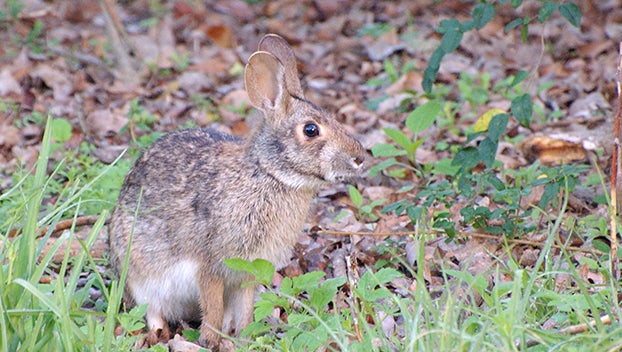Hunters urged to remain vigilant of rabbit disease
Published 12:10 pm Thursday, October 19, 2023
STARKVILLE — Hounds are singing a sweet tune in the early fall morning as they chase cottontails. Rabbit season is here and the Mississippi Department of Wildlife, Fisheries and Parks reminds hunters to remain vigilant for Rabbit Hemorrhagic Disease Virus Type 2.
MDWFP Small game biologist Rick Hamrick confirmed before rabbit season that there are no new cases of the rabbit disease in Mississippi. MDWFP published an announcement yesterday stating there is still no confirmed detections of RHDV2 in Mississippi’s wild populations.
RHDV2 was first detected in Mississippi in October 2021. The virus infected 20 domesticated rabbits in Rankin County but still has not spread to the wild rabbit population. Rabbit Hemorrhagic Disease is a disease caused by a virus in the calicivirus family.
Until 2018, this disease was only found in European rabbits before it was detected in Canada. By 2020, the disease had spread in the west to New Mexico, Arizona, Colorado, Texas and California. He said it is safe to assume RHDV2 could spread to native species of wild eastern cottontail and swamp rabbits.
According to the MDWFP website, the disease enters a rabbit’s body through the mouth, nose or eyes. The virus persists in the environment for a very long time and is resistant to deactivation.
The virus spreads through direct contact with infected live or dead rabbits. Humans, pets and livestock are not susceptible to the disease. Humans can spread the disease with rabbit fur on their clothing. It could spread through rabbit urine or feces in the bedding of domesticated rabbits, Hamrick said.
RHD has a mortality rate of 20 percent, on average. In localized settings, the mortality rate ranges from 5 to 70 percent. In the Rankin County domestic outbreak, 21 out of 22 rabbits died within a six- to eight-day period. There is a vaccine that was granted emergency authorization, Hamrick said last year.
“There is still not a cure or treatment once a rabbit is infected. There has been a vaccine granted emergency authorization that can be used to protect domesticated rabbits,” Hamrick said last year. “Medgene Labs based in Brookings, SD received emergency use authorization from the USDA for their RHDV2 vaccine. Rabbit owners would need to contact their veterinarian to determine how it might be obtained and administered, and supplies are likely limited.”
People can call (601) 359-1170 if they have any questions. As of right now, there is no evidence of the disease in wild rabbit populations in Mississippi.
Proper disposal of rabbits harvested while hunting would be field-dressing the animal on site. If you remove the animal from their home range area, it is best to place the remains in a garbage bag so it could be buried in a landfill rather than throwing it out into the woods, he said.
“There is no way to effectively vaccinate wild rabbits, so we have to practice good sanitation and biosecurity with domestic rabbits and do all we can to prevent spread of the disease,” Hamrick said last year.
Some of those good sanitation practices and biosecurity include:
- Do not allow pet or wild rabbits to have contact with your rabbits
- Do not allow visitors in rabbitries or let them handle pet rabbits without protective clothing
- Always wash hands with soap and water
- Do not introduce new rabbits from unknown or untrusted sources
- If you bring outside rabbits into your home keep them in quarantine for at least 30 days
- Sanitize all equipment and cages
- Establish a worked relationship with a veterinarian to review biosecurity practices
- If you live near or visit an area where the disease is confirmed do not touch any dead rabbits
- If you see multiple dead rabbits contact the MDWFP
- If you own domesticated rabbits do not release them into the wild
People should contact Rick Hamrick via email at Rick.Hamrick@wfp.ms.gov or the MDWFP at 601-432-2199 if they find large numbers of dead wild rabbits with no apparent signs of death. Those who have domesticated rabbits should contact the MBAH if they notice several domesticated rabbit deaths by calling 1-888-722-3106.
Did you have a fun or memorable rabbit hunt? Share your stories and pictures by emailing hunter.cloud@dailyleader.com.






